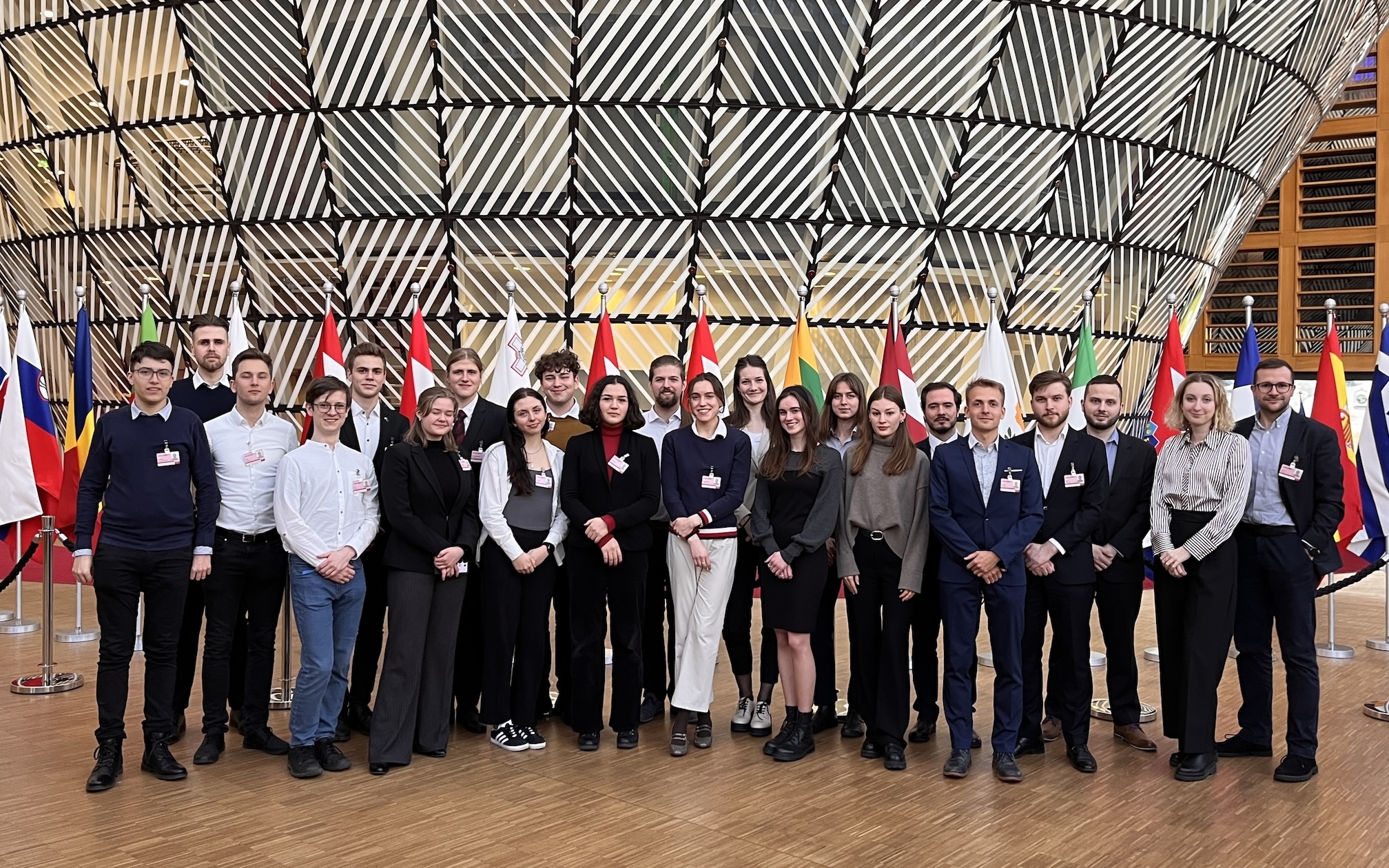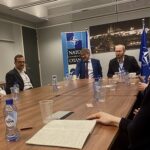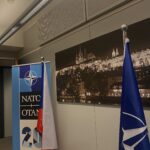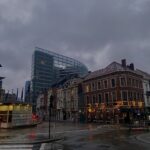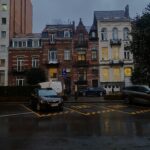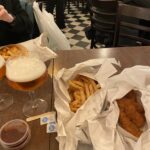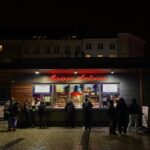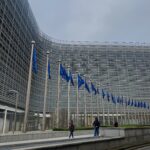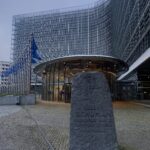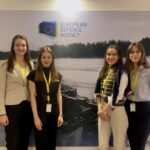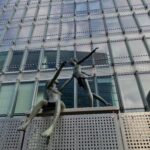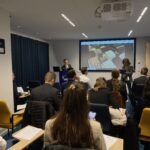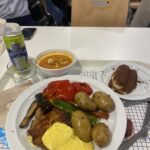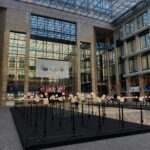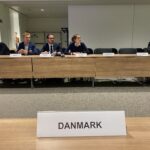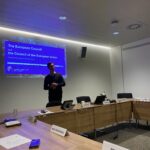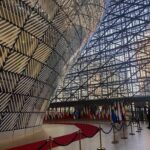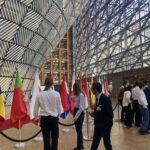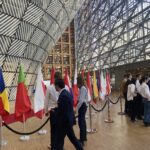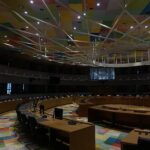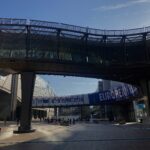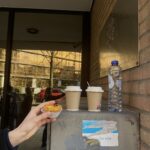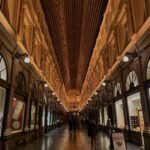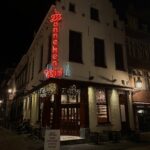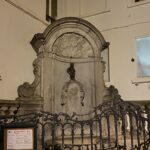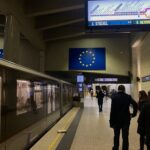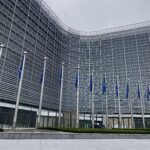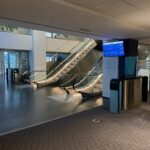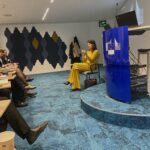At the end of February, the participants of the Security Academy 2023/2024 had a study trip to Brussels. Here is a look back at the program that the participants themselves attended. The study trip was supported by the Representation of the European Commission in the Czech Republic.
Day 1
The Security Academy section was enriched for this study tour by a group of winners of last year's Europa Secura high school competition and Viktor Vágner - representative of the Commission's Representation in the Czech Republic and co-organizer of the trip. The beginning of the trip was successful beyond expectations - we all managed to fly out. However, the optimistic mood was slightly spoiled by a delayed flight, which ruined the time we could have spent at the first destination - NATO HQ. There we were welcomed by Matti Tetrev, political diplomat of the Permanent Delegation of the Czech Republic to NATO, in addition to the typical rainy Belgian weather. The tour, in the time crunch, boiled down to just a quick move through the HQ of the Death Star-looking headquarters, which we all know from photos of important visits, but the opportunity to be in these premises in person completely made up for the unfulfilled items on the agenda. The debate with the Czech and Slovak Ambassadors to NATO, Jakub Landovsky and Peter Bátor, was informative, funny, open and serious. Many regions and topics were discussed - Russian aggression, the southern border and the future with Africa, EU-NATO cooperation and many others.
Závěr prvního dne naší návštěvy do Bruselu jsme se rozhodli zakončit ve velkém stylu – skupinovou ochutnávkou legendárních belgických hranolků, které jsou v této zemi právem považovány za národní poklad. Sestavení tohoto dobrodružného plánu proběhlo spontánně v lobby našeho hotelu, když se náš průvodce Viktor mezi řečí zmínil o nedaleké hranolkárně.
Day 2
After a hearty breakfast on Tuesday, we visited the European Defence Agency (EDA), headed by Director General Jiří Šedivý. He gave us an overview of the Agency's scope of work, which is primarily concerned with the harmonization of military and non-military requirements at the operational level, the support of research in the defense sector at the European level and the training of exercises in support of operations under the Common Defense and Security Policy. Among other things, we discussed the EU's commitments towards Ukraine and the possibilities of supporting European companies in the defense sector. Mr Šedivý then highlighted the under-representation of Czechs in the EU institutions and motivated us to consider job opportunities in Brussels.
After a discussion with spokesman Peter Stan, we were pleasantly surprised to receive a voucher for lunch at a local canteen in the Charlemagne building. The free refreshments were a delight and gave us the opportunity to spend time with good food in an environment where ideas and cultures from across the European Union collide on a daily basis. We thank the European Commission Visitors Centre for this kind gesture.
In the afternoon, the program was followed by a visit to the EU Council building, where we were welcomed and guided around the premises by two Czechs, who have been working in the EU since David Černý's Entropy was exhibited in the atrium of the Justa Lipsius building, the Council's headquarters. We then attended a lecture by a member of the General Secretariat of the EU Council, where we used one of the meeting rooms where ministers of the member states normally meet. Like the country currently holding the Presidency of the Council of the EU - Belgium - our speaker was, fittingly, Belgian at the head of the table. The lecture concluded with a discussion on the current and future challenges of the current presidential trio.
Day 3
The last day of our program on Wednesday started with lectures and debates with the European External Action Service (EEAS). In the European Commission building, we heard a lecture by Radek Kohl from the Directorate for Security and Defense Policy (SECDEFPOL), Counter-Terrorism Unit. We learned a lot of interesting facts about the structure and decision-making process of this organization, and about the current situation in the Balkans and the Middle East. This part of the day's program was of great interest in the discussion part, where we were very enthusiastic about the issues discussed. Next, Petra Gombalova Kyslingerova, Head of the Ukraine Unit at the EEAS, took the floor. During her presentation we had the opportunity to learn about the current approach of the EEAS towards Ukraine, including the possible accession of Ukraine and other Eastern European countries to the EU.
After the end of the debates with the EVSČ staff, our groups were treated to a small surprise in the form of a meeting with members of the cabinet of the European Commissioner Věra Jourová. Specifically, we met Daniel Braun, Head of the Cabinet, and Veronika Musilová, a member of the Cabinet, beyond our original program.
Benefits, insights, observations
A visit to all the above-mentioned institutions materialized for us the abstract tangle of norms and political structures that we read about daily in the news and in textbooks. The debates with top officials and diplomats brought us closer to the European Union on the level of the daily hard work of officialdom and the endless cycle of negotiations. The experience brought us closer to an incredibly complicated European Union project that suddenly became tangible. The visit also had the same benefit for the future careers of the tour participants, making the outlines of their dream jobs in the institutions visited tangible.
Compromise and consensus is what holds the Union together and keeps it democratic. It is these two aspects that are most often attacked from a position of rising populism because of the accompanying inefficiency and lengthiness of bureaucratic processes. However, the ability and willingness to find compromise and unity maintains values in the European Community that far outweigh the efficient machinery of authoritarianism. In the context of long-standing efforts by various actors to undermine the legitimacy of political processes, the EU's democratic governance and the values it represents must be actively defended.
Jakub Janota, Vojtěch Sýkora, Matěj Appelt, Olivie Ivančíková, Alžběta Kvasničková, Jakub Tejkl, Jakub Matys, Michaela Tichá

